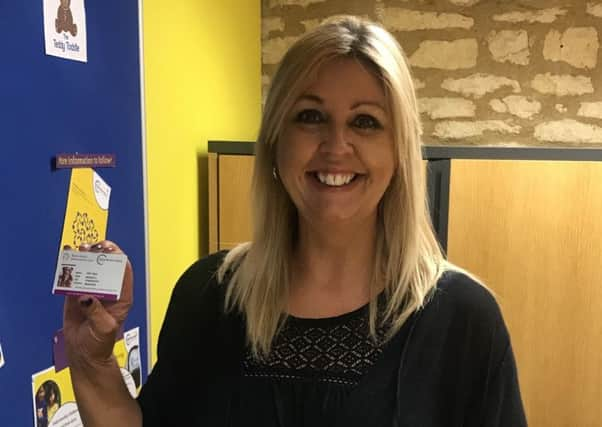New support service for children with acquired brain injuries


The charity, which supports hundreds of families across the UK whose lives have been affected by brain injury, launched the new Brain Injury Information Card on Monday, May 14 to coincide with Action for Brain Injury Week.
Lisa Turan, CEO of the Trust, explains: “The new service is a Brain Injury Information Card, suitable for young people aged 11-18. The idea behind the card is that young people can carry the card as they go about daily life, and present it in situations where they need a little help and understanding.”
Advertisement
Hide AdAdvertisement
Hide AdKoulla Yiasouma, Northern Ireland Commissioner for Children and Young People said: “One of the challenges of acquired brain injuries is that it is often not immediately clear or obvious that a person has a condition. For children and young people this can affect the way they are treated, and how others engage and interact with them.
“Raising awareness and improving understanding and recognition are key to addressing this. Initiatives such as Brain Injury Information Cards can play an important part, helping to make sure young people get the support they need and giving them added confidence in their day to day lives.”
Dr David McCormick, a Consultant Paediatrician in Paediatric Neurosciences at King’s College Hospital, London added: “Brain injury can lead to a wide range of difficulties in young people. Some are obvious but may be mistaken for other conditions such as rudeness, poor behaviour or even intoxication. Some are not obvious at all, meaning that appropriate allowances may not be made for the young person. In either circumstance the Young Person’s Brain Injury Identity Card provides a vital source of identification and information in a range of social situations – I fully endorse the distribution and use of these cards.”
For further information log on to www.childbraininjurytrust.org.uk